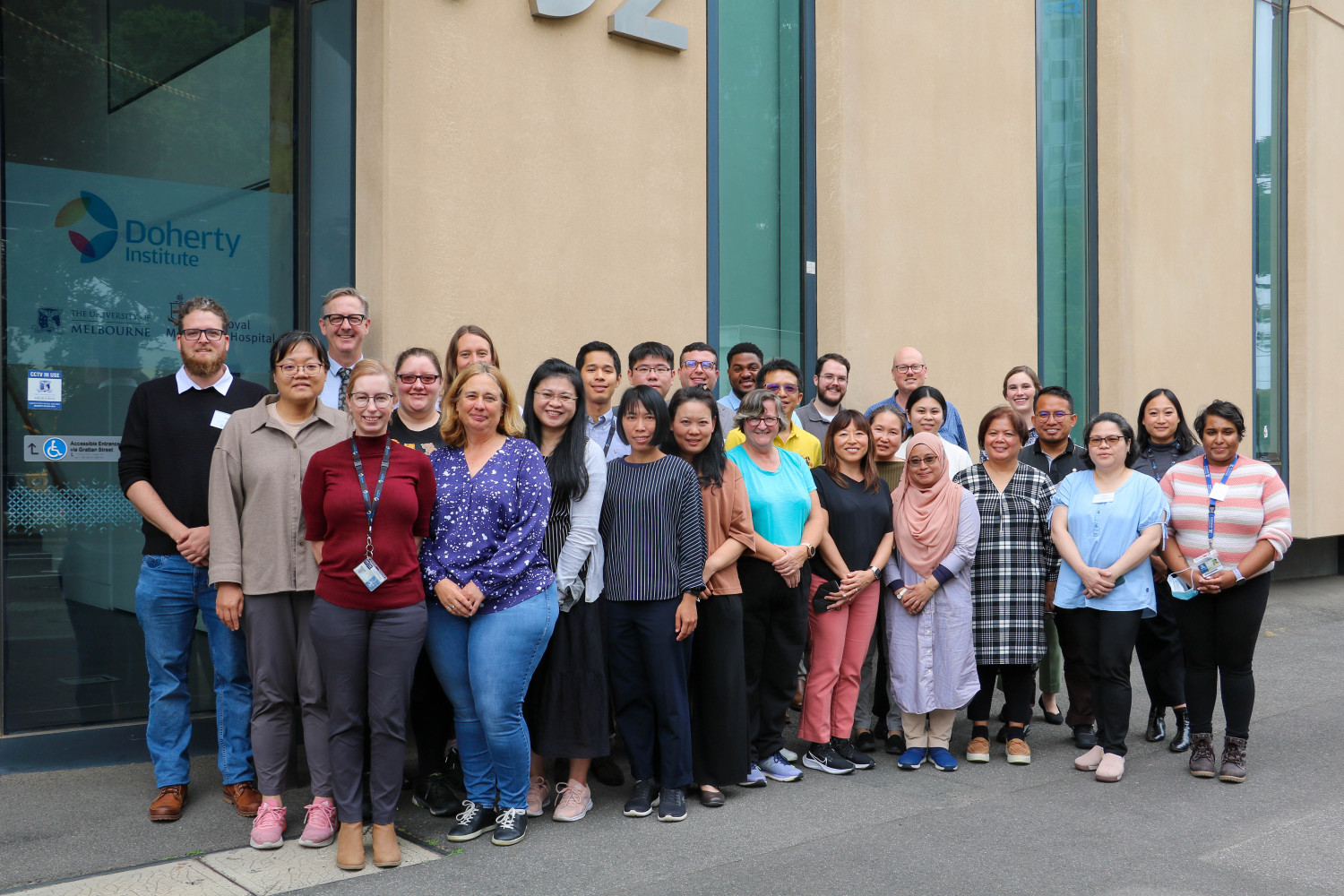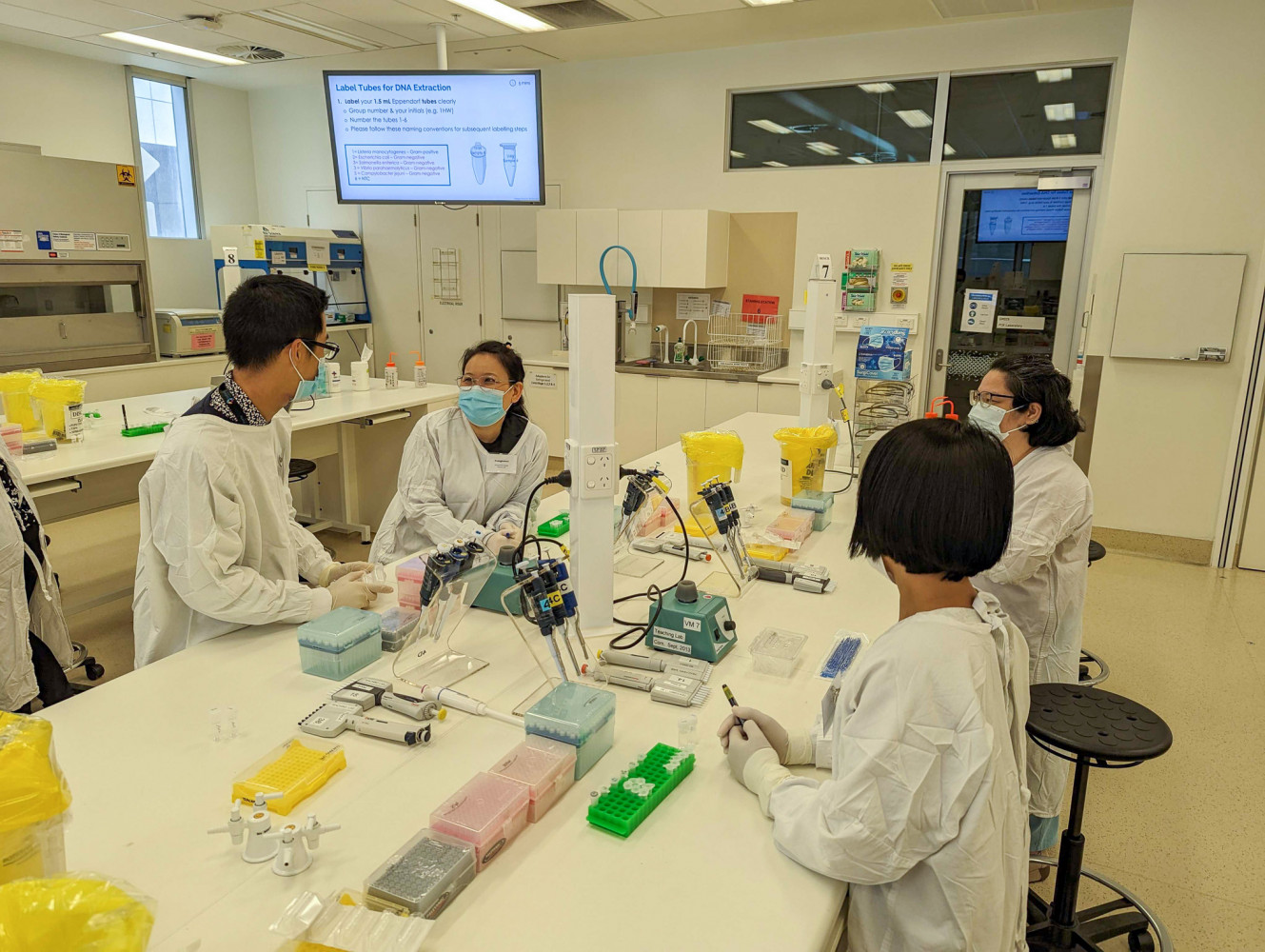05 Apr 2023
Expanding whole genome sequencing capacity in the Asia-Pacific Region
The Centre for Pathogen Genomics (The Centre), in partnership with the Association of Public Health Laboratories (APHL) and the U.S. Centers for Disease Control and Prevention (U.S. CDC), recently hosted a week of training for Illumina Whole Genome Sequencing (WGS) at the Peter Doherty Institute for Infection and Immunity (Doherty Institute) in Melbourne.

Trainers and program attendees at the Doherty Institute, Melbourne
While the established gold-standard for the identification of enteric bacteria has been PulsedField Gel Electrophoresis (PFGE), PulseNet International (PNI), a network of National and regional laboratory networks dedicated to tracking foodborne infections world-wide, have now moved to utilising WGS. This training is part of PNI’s efforts to help make this transition on the global scale and provide a unified way of analysing enteric pathogens.
Participants attended from across the Asia-Pacific region, with representatives from organisations in Taiwan, New Zealand, the Philippines, Thailand and Malaysia. Additionally, trainers and program staff from APHL, U.S. CDC and Theiagen travelled from the USA to facilitate the training in conjunction with Centre staff.

Attendees undertaking wet lab training in the laboratory
The program was composed of wet lab and dry lab training. Libraries were generated using the Illumina DNA Prep protocol and were sequenced on the MiSeq. Subsequent data analysis was performed using bioinformatic workflows developed by Theiagen on the Terra.bio platform.
“We had a diverse range of skills [of participants] coming in, which meant we had to pitch the training at a relatively basic level to make sure everyone walked away with competency whilst also keeping more advanced people engaged.” Notes Dr Louise Judd, Senior Research Genomics Scientist at the Centre and one of the facilitators for the training.
“We are confident that everyone took something away from the training, which was made simple by the amazing training space and laboratories available at the Doherty Institute.”
Kristy Kubota, Manager for PulseNet at APHL, remarked “I'm excited about the new partnerships with the Centre as PulseNet Asia Pacific Coordinators and the laboratory scientists who attended our training. Our work under the Global Antimicrobial Resistance Laboratory and Response Network is expanding opportunities for us to build laboratory and bioinformatics capacity for NGS using PulseNet protocols and methods.”
Heather Carleton, co-Chair of PulseNet International and Chief of the Enteric Diseases Laboratory Branch at U.S. CDC, also had a positive view of the training.
“We are only able to do WGS training in the region due to our incredible partners at the Centre, their experience and engagement in the region has greatly contributed to the success of the training and our ability to continue to implement WGS for enteric bacteria and Antimicrobial Resistance in the Asia Pacific.”
The Centre team is looking to follow up with participants via in-country visits and will be presenting their data later in the year at the PNAP meeting.
Groups involved:
Centers for Disease Control (Taiwan)
Institute for Environmental Science and Research (New Zealand)
Research Institute for Tropical Medicine (Philippines)
National Institute of Health of Thailand (Thailand)
Centers for Disease Control (Thailand)
Institute for Medical Research (Malaysia)
Association of Public Health Laboratories (USA)
Centers for Disease Control and Prevention (USA)
Centre for Pathogen Genomics (Australia)
Doherty Institute (Australia)


